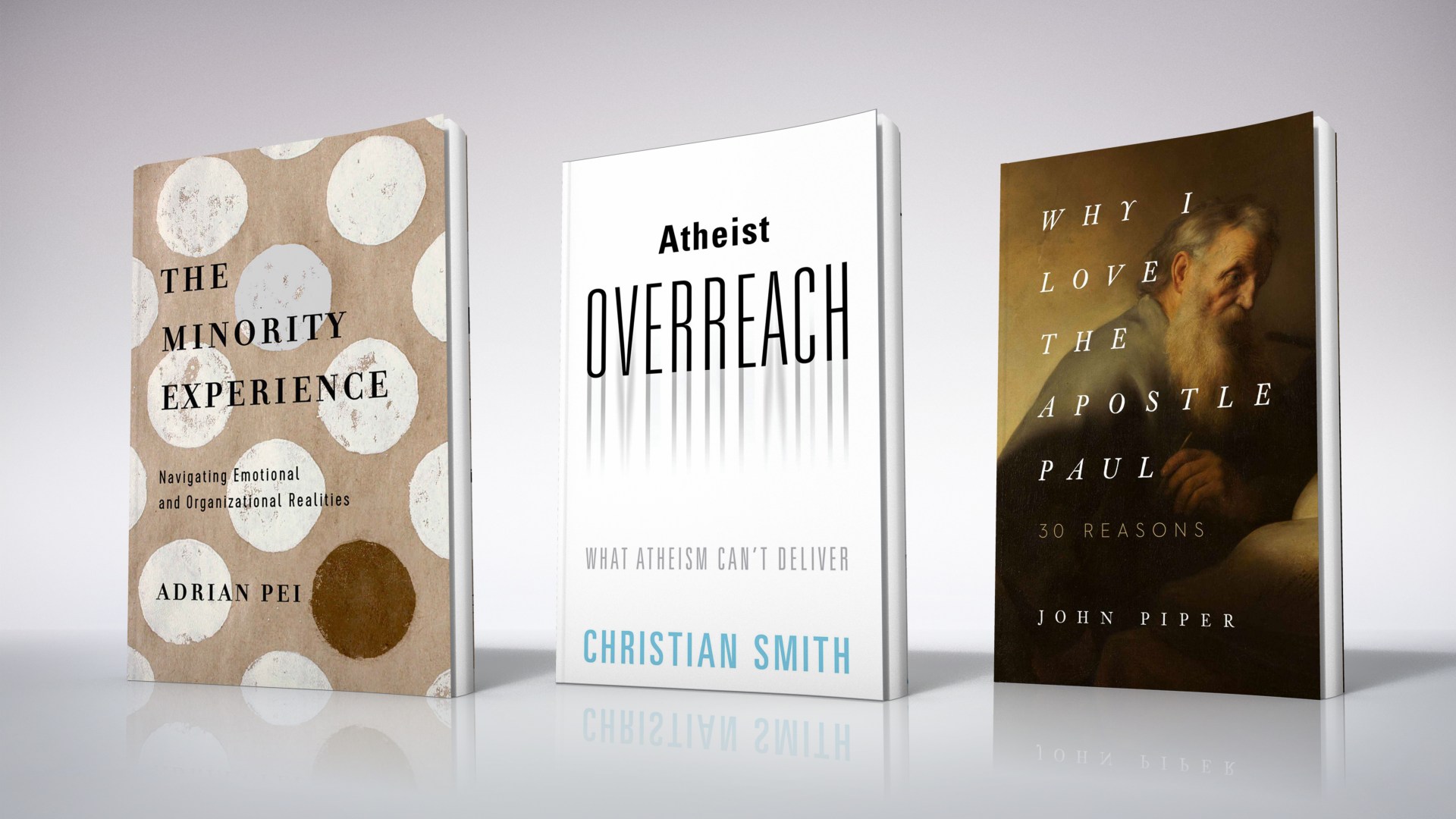The Minority Experience: Navigating Emotional and Organizational Realities
Adrian Pei (InterVarsity Press)
Even in workplaces that make a point of recruiting, hiring, and developing the gifts of ethnic minorities, cultural blind spots and power imbalances can lead to tension and frustration. In The Minority Experience, Adrian Pei, an organizational development consultant and leadership trainer with experience in Cru’s Asian American ministry, walks through the practical and emotional challenges faced by minorities working in organizations predominated by white leaders or white cultural norms. In sections on understanding and redeeming the minority experience, Pei shows how minority employees can thrive amid cross-cultural confusions and how organizations can do a better job making them feel welcome.
Atheist Overreach: What Atheism Can’t Deliver
Christian Smith (Oxford University Press)
Contemporary atheists are confident that secular values can furnish a society’s moral foundations, that science can disprove God’s existence, and that there is nothing inherent in human nature that inclines most people to seek truth or solace in religion. In each instance, according to sociologist Christian Smith in Atheist Overreach, this confidence is misplaced. Without making any claims as to whether “atheism as a worldview is fundamentally right or wrong,” Smith argues that “many contemporary atheist activists are trying to claim too much, attempting to establish positions that are unwarranted,” and “going overboard in confidence and enthusiasm.”
Why I Love the Apostle Paul: 30 Reasons
John Piper (Crossway)
As John Piper explains in the opening lines of this book, a series of short meditations on the apostle Paul, “I have lived with [him] for over sixty years—admired him, envied him, feared him, pounded on him, memorized him, written poems about him, wept over his sufferings, soared with him, sunk to the brink of death with him, spent eight years preaching through his longest letter, imitated him. Ha—imitated him! In ten lives, I would not come close to his sufferings—or what he saw.” Through Piper’s “highly personal,” impressionistic strokes, the book articulates why the apostle is emphatically worthy of our admiration and trust.










